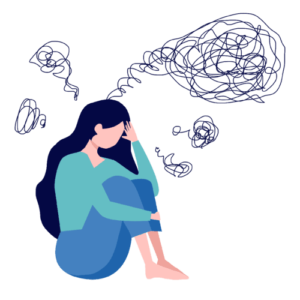
Opioid Addiction Test
Answer these simple questions to understand more about your Opioid Addiction. We share instant results and keep your information confidential.

What is Opioid Addiction Test?
Opioid addiction assessment involves evaluating individuals for signs of opioid dependence or abuse. It typically includes a comprehensive medical and psychological examination to identify risk factors, patterns of use, and the severity of addiction. Clinicians may use standardized questionnaires, interviews, and urine tests to gather information about the patient’s history and current opioid use. The assessment helps determine the appropriate treatment plan and support for individuals struggling with opioid addiction. Early identification and intervention are crucial for better outcomes in managing opioid addiction.
Who can benefit from this Opioid Addiction Test?
Anyone who may be struggling with opioid use, dependence, or addiction can benefit from an opioid addiction assessment. This includes individuals who are prescribed opioids for pain management, those misusing opioids for recreational purposes, or individuals with a history of substance abuse. The assessment helps identify the severity of the addiction, underlying factors, and potential co-occurring mental health issues. By undergoing this evaluation, individuals can receive appropriate treatment and support tailored to their specific needs, leading to a higher chance of successful recovery and improved quality of life.


Opioid Addiction Test Accuracy
The accuracy of opioid addiction assessment depends on various factors, including the methods used, the expertise of the assessors, and the honesty of the individual being assessed. Standardized questionnaires and medical examinations can provide reliable data, but self-reporting may have limitations. In cases of chronic opioid use, physical dependence can be evident, increasing the accuracy. However, individuals may underreport or deny their addiction due to stigma or fear of consequences. Despite potential challenges, a well-conducted assessment by trained professionals can offer valuable insights, aiding in tailored treatment plans and support.
Types of Opioid Addiction Test
Medical Examination:
Physicians assess physical health, withdrawal symptoms, and signs of opioid use to determine the individual’s condition.
Psychological Evaluation:
Mental health professionals assess emotional well-being, underlying issues, and co-occurring disorders to address the psychological aspects of addiction.
Substance Use History:
Collecting information about the individual’s drug use patterns, previous treatments, and family history helps in understanding the scope of addiction.
Urine Drug Testing:
Detects opioids and their metabolites in urine, helping to verify opioid use and monitor progress during treatment.
Self-Report Questionnaires:
Standardized surveys allow individuals to express their opioid use patterns, providing valuable insights into their perception of addiction.
Behavioral Observation:
Monitoring behavior and interactions with others can offer clues about the severity of opioid dependence and its impact on daily life.
Handling Opioid Addiction
Handling opioid addiction is a complex and challenging process that requires a comprehensive approach involving medical, psychological, and social support. Opioids are highly addictive substances, and addiction to these drugs can have devastating effects on individuals and their families. Here are some key steps in addressing opioid addiction:
- Medical Detoxification: The first step is often medical detoxification, which involves gradually reducing the opioid dosage to manage withdrawal symptoms safely. This process may occur in an inpatient or outpatient setting under the supervision of healthcare professionals.
- Medication-Assisted Treatment (MAT): MAT involves using medications, such as methadone, buprenorphine, or naltrexone, along with counseling and behavioral therapies, to treat opioid addiction. These medications can help reduce cravings and withdrawal symptoms, making it easier for individuals to focus on recovery.
- Counseling and Behavioral Therapies: Individual or group counseling, cognitive-behavioral therapy (CBT), motivational interviewing, and other behavioral therapies are crucial components of opioid addiction treatment. These therapies address the underlying psychological and emotional aspects of addiction and help individuals develop coping mechanisms and relapse prevention strategies.
- Support Groups: Joining support groups like Narcotics Anonymous (NA) can provide valuable peer support and encouragement during the recovery journey.
- Addressing Co-Occurring Disorders: Many individuals with opioid addiction also have underlying mental health issues. Treating co-occurring disorders concurrently is essential for successful recovery.
- Education and Harm Reduction: Raising awareness about the risks of opioid use and promoting harm reduction practices, such as needle exchange programs and naloxone distribution, can help prevent overdose deaths.
- Family Support: Involving family members in the recovery process can create a strong support system for the individual undergoing treatment.
- Rehabilitation and Aftercare: Inpatient or outpatient rehabilitation programs can provide a structured environment for recovery, and aftercare planning ensures ongoing support and resources to maintain sobriety after treatment.
- Relapse Prevention: Developing strategies to prevent relapse is critical. Identifying triggers, stressors, and high-risk situations, along with learning coping mechanisms, can help individuals navigate challenges without turning to opioids.
- Long-term Follow-up: Opioid addiction is a chronic condition, and long-term follow-up with healthcare providers and support groups can help sustain recovery efforts.
Remember that every individual’s journey through recovery is unique, and treatment approaches may vary based on personal circumstances and preferences. Seeking professional help from healthcare providers, addiction specialists, and mental health professionals is essential for creating an effective and personalized treatment plan.